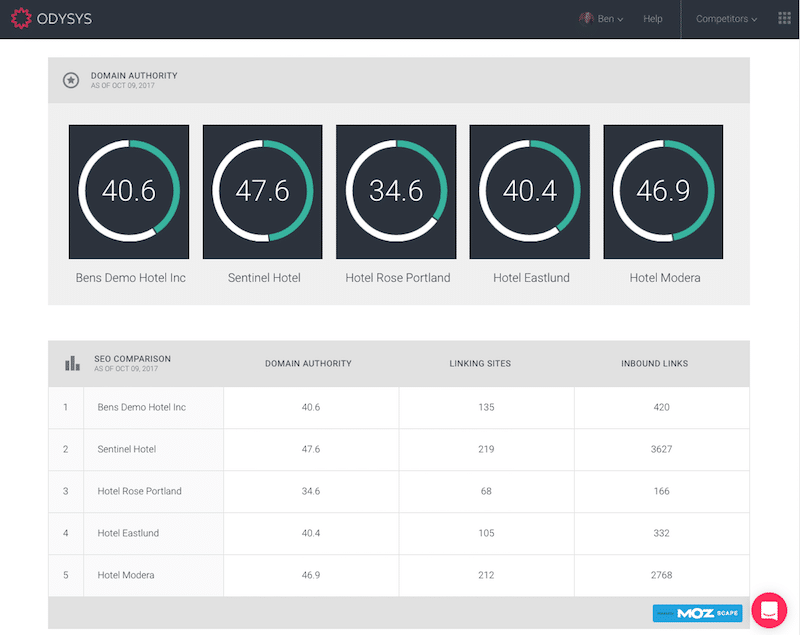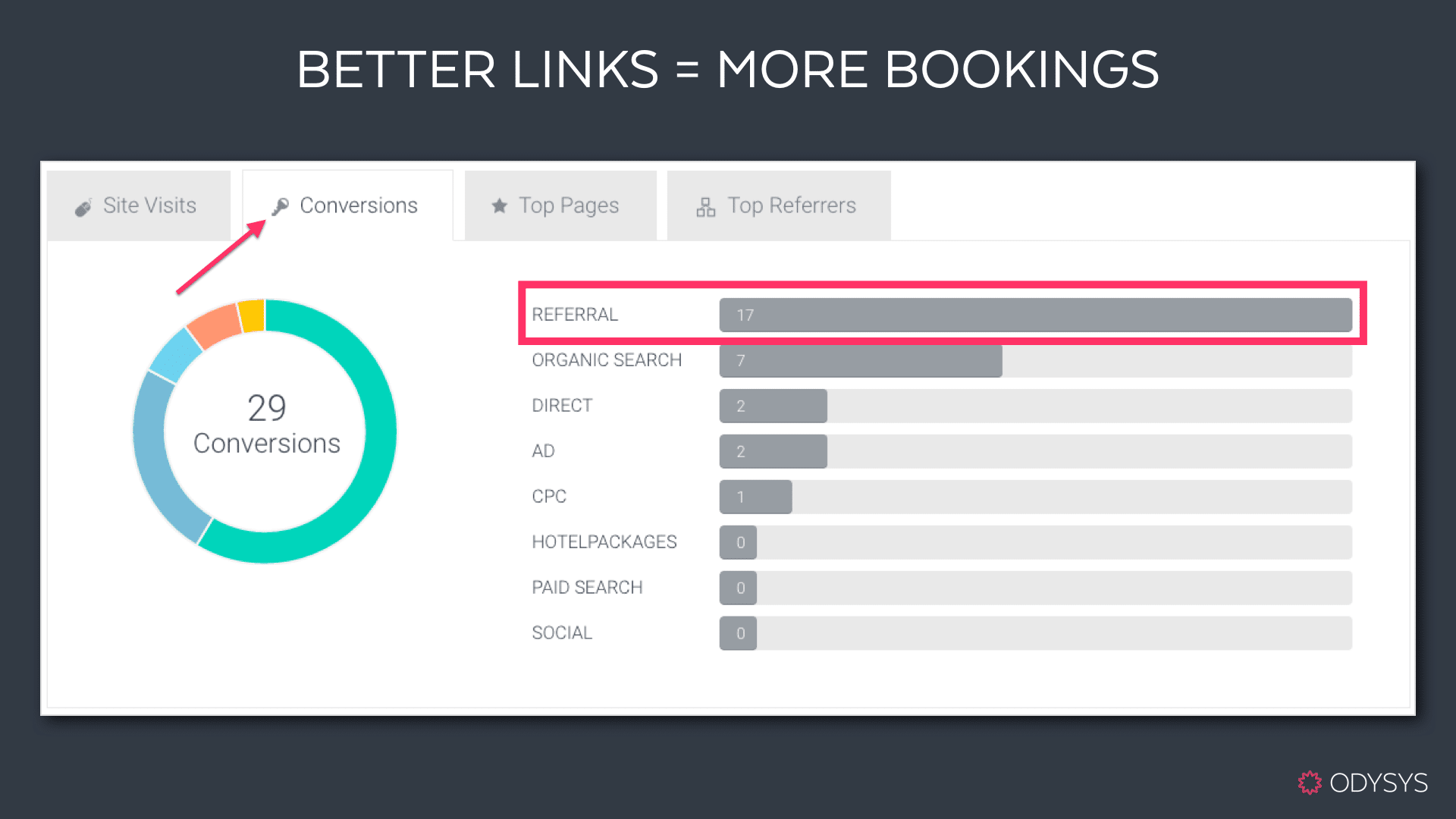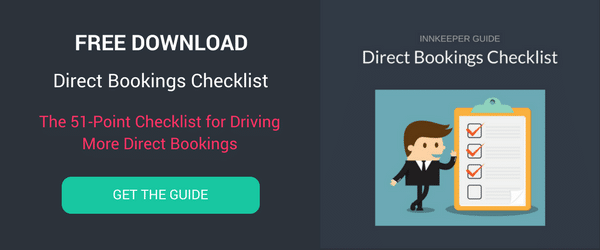Link building is one of the foundational elements of good SEO. It is essential to driving traffic to your site and building the authority of its content. It also happens to be one of the most complex and ever-changing parts of SEO. But what exactly do we mean by "links"? What exactly is "link building"? And why do links matter?
Link building happens when other websites link to your site in their content. When users click on this link, they will then be directed to your website. Search engines also use these links to crawl between the individual pages on your website as well as links between different websites across the Internet. Think of link building as a way of improving your online reputation. The more links you get, the better you look in Google's eyes.
Search engines use links to:
- Find new web pages by "crawling" the links from one page and one website to another
- Determine how a page should rank in Google results
But remember: Google is a sophisticated, finely tuned machine. Your focus should be on both the volume and the quality of your links. Strive to generate as many links from as many authoritative sites as you can. Google can tell the difference between a high-quality and low-quality link, so you should really make the effort to ensure your links come from excellent sources. The best kind of links to get are not the links you "build" but the links that you "earn". More about that later.
Links, Domain Authority and Search Engine Rankings & Traffic
Links contribute to your domain’s “authority”. Your website’s domain authority will improve over time as you increase the quality of links pointing to your website. You can track your domain authority in Odysys or using a site like Moz Open Site Explorer or AHrefs.com.
Think of links and domain authority like this. If your business and your competitor’s business are on the same street and both of your websites are perfectly optimized for something like “portland oregon bed & breakfast”, how does Google figure out which one to rank ahead of the other? The answer is links & domain authority.
How to Get Links
Link building can be tedious and occasionally a little complicated, so we’ve laid out the basics everyone can do to start generating links today. Once you’ve covered the basics of link building, you can move on to other important aspects of SEO, like content strategy, marketing, and PR.
1. Start with links from “Owned” Lists & Profiles
These links are the easiest ones to get because you are in control of them. Owned links refer to your own social media pages, like Facebook, Instagram, Twitter, etc.
You can also create links via your business listings on sites like Google My Business, Yelp, FourSquare, YellowPages, and others.
First things first, make sure you have properly filled out the “About” or “Bio” sections on all of these pages, including the areas where you link to your own website. This is an easy and surefire why to build links entirely on your own.
2. Links From Partners, Groups, & Associations
Get in touch with the real world organizations you are part of and see if they will link to your site online. Are you paying for a membership in some type of Hotel or Bed & Breakfast Association? How about the chamber of commerce or visitors association? Make sure your listing on that site is correct and fully up-to-date.
You can also exchange links with vendors, business partners, and other complementary businesses, such as local spas & tour operators. Link building is a game of give-and-take. If you offer to link to someone on your site, they will be much more willing to link to your website in return, and vice versa.
3. Build Up Links from “Local” Sites
Next, you should focus on all things local. Find local sites that are well-indexed by Google and are highly associated with your particular city or region. Local Blogs are a great and feasible place to get your business listed. Simply perform a search on Google for “[your city] blog” or “[your neighborhood] blog.” This will likely bring up some good candidates you can then reach out to about featuring your property on their site. Take the time to manually reach out to these sites and ensure them that you have valuable information that will benefit their blog and its readers. That may be a piece of content (ie. you write a post for that blog) or it may be a special, discount, or something you can offer that website’s readers.
You can also search for Locally Focused Directories. You can perform searches for things like "[your city] directory" or "[your state] directory" to find good prospects for these kinds of citations.
4. Reach out to Industry Focused Directories or Blogs
Now is the time to connect with larger hospitality & tourism directories, travel blogs, or websites outside your immediate vicinity. Do the same thing you have done above, but with larger sites, accepting that some of them might not respond.
If a website is focused on topics and keywords related to your products and services, it may be included among the sites that the local search engines count as citation sources—even if that website or directory is not focused on a particular region.Try searches like "[your industry] directory," "[your keyword] directory," or "[your keyword] [your location]."For example, “wedding venues portland oregon.” The results will give you some ideas of the kinds of sites on which to get listed.
5. Don’t Forget Social Shares!
Though not technically a link in the classic sense, social shares play a role in increasing the awareness of your site and its content and can influence links and search rankings. Maintain a quality Facebook page and regularly post new content on it. If you have a website blog, schedule out social media posts to share that content. That way, your followers will see it and may even be inspired to share it on their page.
6. Content Strategy & Marketing (Blogging)
Creating great content and marketing that content can also generate links. Keep in mind that this is more of a long-term strategy and you might only see the gains further down the line. We always advocate for generating great content about traveling and experiencing your destination. This will increase your website’s depth and breadth and will certainly improve your overall search traffic. However, this strategy takes time and will not necessarily generate links to your website right away.
See our guide to blogging for more information
7. “Advanced” Techniques: Move the Needle in a Big Way
Earn Links & Citations Through Good Marketing & PR, Host Events, Have a Charity Drive, Sponsorships, and More
For the most part, the types of links we’ve discussed above are more or less available to everyone and take quite a bit of leg work, not to mention a little bit of know-how. That means these are available to your competition as well. But with a little good marketing and PR, you can bypass all of that technical link building and skip right past your competitors.
An effective PR effort could get your property included on a New York Times Travel section list of “Best Places to Stay,” written up by a travel writer, or included in a TV show. (in a piece like this for example: "3 Great Little Inns on Whidbey Island" or an article like this.)
Other examples of good PR include getting TV coverage because of a charity drive or an event hosted at your property will generate quite a bit of awareness. Sponsoring a local event or hosting an event, meetup, or marketing group at your property can also generate quite a bit of traction and will move the needle more than these other tactics.
These types of strategies & tactics aren’t specifically about building links. They are about marketing your property in such a way where the by-product is links. These types of "earned" and "editorial" links and mentions of your property name will count for more than a directory listing in the long run.
How Can I Tell a Good Link from a Bad Link?
This isn’t as hard as it may sound. Here is what to look for when determining the quality of a potential link:
- Credibility: Is this a source you can trust? Would you personally turn to it for information? In addition to checking to ensure that the content is educational and engaging, also look out for things like good grammar and well-written content.
- Difficulty: How valuable will this link prove in the long run? If obtaining this link will take a lot of hard work, make sure to think about how your time investment compares to your overall marketing goals. Focus on the quality links that are reasonable for you to obtain.
- Traffic: Will this link drive traffic to my site? Link referrals are a great way to bring users to your site and encourage them to make a booking.
- Beware Reciprocal Links: Exchanging links with other local businesses that you partner with is fine. Offering to exchange links en masse as a way to build links, or being required to put a link on your website as a requirement for getting listed on another website, will not generate the desired result. These types of links are typically pretty low quality and will not increase your domain’s authority nor will they actually generate traffic.
Other Benefits of Links
The main benefits of link building are bringing traffic to your site and boosting your site’s ranking on Google. However, the benefits don’t stop there. Link Building is also a great way to:
- Build Relationships: As we mentioned above, link building involves reaching out to other relevant blogs and websites in your industry. Doing this will help you connect with key influencers in your field and spark relationships you might not otherwise make.
- Improve the Visibility of Your Brand: Link building is an excellent way to get your name out there and establish yourself as a serious and authoritative presence in your field. Outreach is a way to showcase your knowledge and expertise while also getting your brand name in front of as many people as possible
- Generate Referral Traffic: A good link from a highly-trafficked website is great, but so is a good link from a smaller website with a passionate following. Link building will help you connect with leaders of your industry AND the customers who may make a booking at your property. Whether you are exposed to a large audience or a comparably smaller audience of devoted followers, you are still making connections and bringing interested users to your site.
- More Bookings: Links can improve your rankings and traffic in search engines, but getting great links can also generate direct bookings.
Clicks from links show up as “referral” traffic in your analytics reports. Links can drive bookings, as shown here.
Search Engines determine the quality of your website based on the authority of its content and the number of exterior links pointing to your website. The more quality links you have, the higher you are likely to rank on Google. Think of a link as one positive vote for your website. The more positive votes your website receives, the likelier it is to win the ongoing race to come out on top of the search rankings.
Still struggling to navigate the ever-changing SEO maze? Download our guide to SEO Myths to Leave Behind for answers to common questions about keywords, link building, OTAs, and more.




